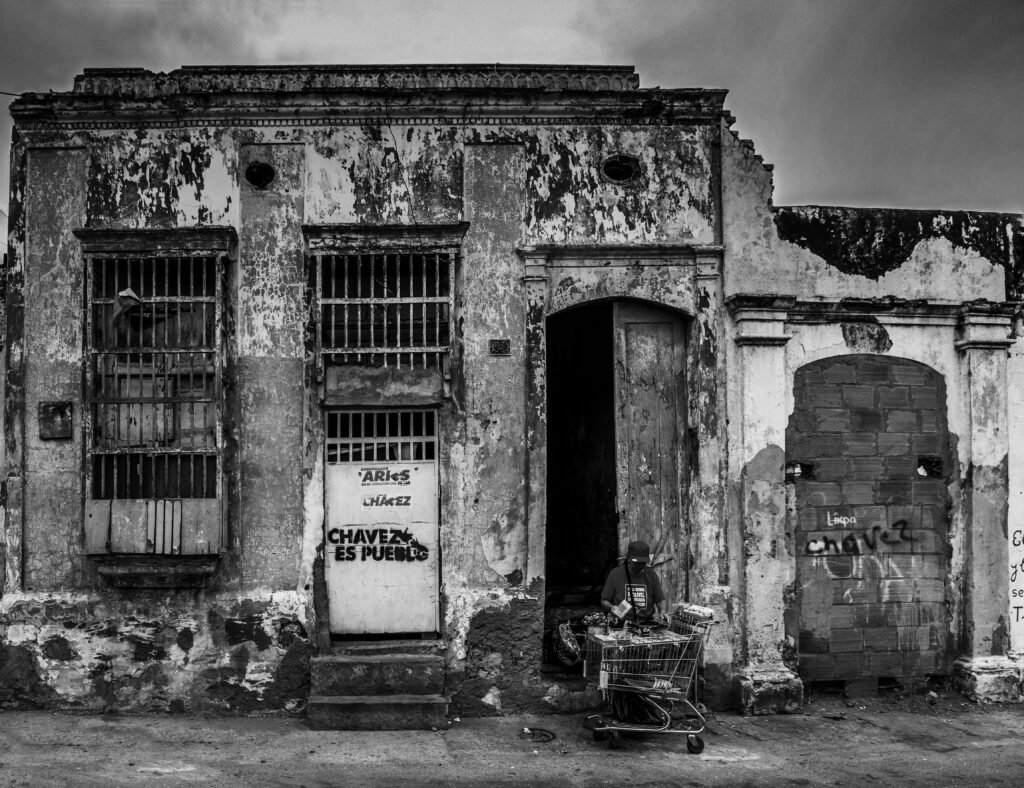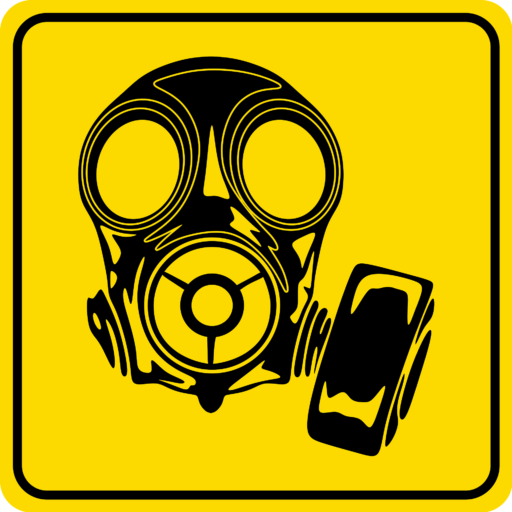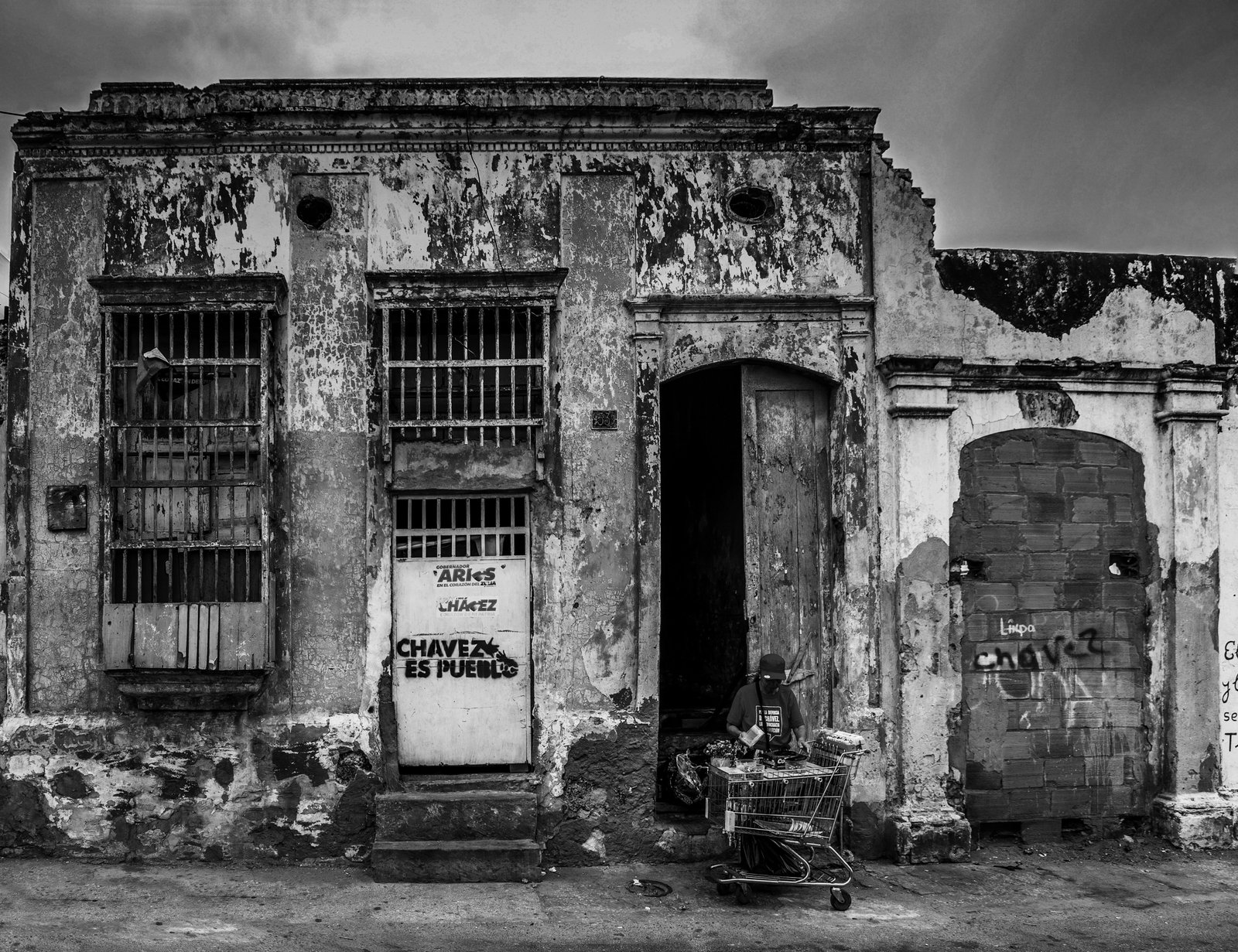*This post may contain affiliate links for which I earn commissions.*
A Wake-Up Call from Afar
The other night, I was curled up with a book when the lights flickered. Just a quick blink—nothing dramatic—but my stomach did a little flip. I glanced out the window at the dark street and thought, “What if they didn’t come back on?” I mean, we’ve all had those moments, right? A storm knocks out the power for an hour, and it’s annoying but fine. But what if it stretched into days—or weeks? That’s when my mind started spinning, and I remembered Venezuela.
I first heard about their collapse years back, flipping through a news channel late at night. The screen showed folks lining up for water, cooking on makeshift stoves cobbled together from scraps, and trading whatever they had just to get by. I sat there, coffee going cold, thinking, “Could I do that? Could I keep my family going if the grid failed like that?” It wasn’t just the chaos that stuck with me—it was how they adapted. Regular people, like you and me, figured out how to survive when everything they counted on fell apart.

That’s why I’m writing this. Venezuela’s grid failure taught me real tricks—like bartering with neighbors or purifying water without fancy gear—that anyone can use for blackouts or worse. I’ve dug into those lessons, tried some out myself, and now I want to share what I’ve learned. Plus, I’ll tackle some questions you might have too—like how they managed without power for weeks or what we can do if it happens here. It’s not about doomsday prepping (I’m no bunker guy!). It’s about feeling ready, curious, and maybe even a little excited to take on whatever comes. So, let’s dive in—what did Venezuela teach me, and how can it help us?
Life Without Power—What I Saw and Felt
The Shocking Reality of No Electricity
When I started digging into Venezuela’s collapse, I thought I knew what to expect. No power, no problem—candles and cold showers, right? Boy, was I wrong? What surprised me most wasn’t just how they coped without electricity—it was the sheer grit they brought to it. I read about folks rigging up old car batteries to light a single bulb for their kids to sleep under. A car battery! I’d have never thought of that. It wasn’t panic setting in—it was this quiet, stubborn resilience that flipped everything I assumed about surviving off-grid. I couldn’t believe they made it work, but they did!
So, how did they manage day-to-day life with no juice for weeks? Picture this: families huddled around small fires in their yards, cooking whatever scraps they had—maybe rice or a potato—over flames they kept alive with twigs. Water came from collecting rain in buckets or trekking to a stream if they were lucky. Staying cool? Forget it—they’d sleep in shifts during the day when the heat wasn’t so brutal, windows wide open, hoping for a breeze. Washing meant a quick scrub with that rainwater, maybe a shared bar of soap if they had one. It was gritty, messy, and tough—but there was something inspiring about it too. They didn’t just sit there waiting for the lights to flicker back on. They got creative.
And yeah, it’s totally changed how I see power outages at home. A few years back, I’d shrug off a couple of hours without power—pop open a soda and wait it out. Now? I see how fast it can spiral. Last summer, a storm knocked us out for a day, and I caught myself eyeing my stove, wondering how I’d cook if it stretched longer. Venezuela showed me that a blackout isn’t just an inconvenience—it’s a wake-up call to get ready. I used to think, “It’ll be fine.” Now I think, “What’s my next move?” That shift hit me hard, and it’s why I’m sharing this with you. If they could handle weeks, I can figure out days— and so can you.
Bartering 101—Lessons from a Cashless Crisis
When Money Meant Nothing
When Venezuela’s grid went dark, I figured cash would still rule. Nope! It turned into paper faster than you’d believe, and bartering took over. So, what did Venezuelans trade most when the power was out? The staples were no surprise—rice, batteries, soap—stuff you’d expect in a blackout survival kit. But here’s the wild one: cigarettes. Even non-smokers were swapping them like currency! I guess a quick puff was worth more than a fistful of useless bills in those crazy times. It got me thinking—what’s my cigarette stash equivalent?
Now, if you’re like me, bartering sounds intimidating. How do you even start if you’ve never done it? It’s simpler than it looks. Find a neighbor, ask what they need, and offer what you’ve got. That’s it! I tried it once during a storm outage—swapped a batch of homemade cookies for a candle. Took five minutes, and we both walked away happy. It’s not rocket science, just common sense—and way easier than you think. You’ve probably got something worth trading right now, like extra canned goods or a flashlight.
Did bartering beat cash during those outages? Oh, absolutely. Cash lost value overnight—stores were empty, and nobody wanted paper when they couldn’t eat it or light it. Goods became gold. A bag of flour could get you a bucket of water; a pack of matches might snag you some oil. It was all about what you could hold in your hands. I started eyeing my pantry differently after that—every jar’s a potential deal.
But here’s the catch: I learned people messed up bartering in Venezuela too. The big mistake? Trading away essentials too soon. Picture this—someone swaps their last rice for a radio, thinking they’ll hear good news, but then they’re starving by day three. Ouch. My takeaway? Know your must-haves first. Sit down, list what you can’t live without—like food or water—then barter the extras. I’d never trade my coffee stash unless I had a backup plan! It’s about staying smart, not just surviving the moment.
Bartering’s a skill I’m still tinkering with, but Venezuela showed me it’s a lifeline when the grid fails. It’s practical, it’s doable, and it’s kind of fun once you get the hang of it.
Water—The Lifeline You Can’t Ignore
Keeping It Clean Without Power
When the power died in Venezuela, I figured the water would be the first thing to go. No pumps, no pipes—yikes! So how did they get clean water without electricity? I was blown away by the ingenuity. Folks boiled it over little fires they built with whatever would burn—sticks, old boxes, you name it. Others filtered murky stuff through layers of clean cloth, squeezing out what they could. And here’s a quirky one I stumbled across: some even tapped into swimming pool water! Not my first choice, but when you’re desperate, you make it work. It’s wild to think about, but it showed me water’s non-negotiable—you’ve got to find a way.
So, what’s the easiest way to purify water if the grid fails here? I’ve tinkered with this myself, and here’s a low-tech winner: a pot, a fire, and a few drops of bleach—done! You just heat it up to a rolling boil for a minute, let it cool, and add a tiny bit of unscented bleach—about eight drops per gallon. Stir it, wait half an hour, and it’s good to go. I tried it with some questionable creek water once—lesson learned, it’s simple and it works. No fancy filters are needed, just stuff you’ve probably got lying around.
Did any water purification tricks flop in Venezuela? Oh, yeah. I read about folks who thought murky rainwater was fine because it “looked okay” after sitting. Big mistake. They’d drink it, and bam—sick as dogs. Taste isn’t safe, and that hit me hard. I tried skipping the boiling step once with pond water just to see—spoiler, my stomach wasn’t happy. It’s a reminder: looks can lie, so don’t skimp on the basics.
And how much water do you really need to stockpile for a long blackout? Here’s my rule of thumb: one gallon per person per day. That covers drinking, a little cooking, and splashing your face. But tweak it—double it if it’s hot or you’re sweaty from hauling wood for that fire. I’ve got a few jugs stashed now, and after picturing Venezuela’s dry spells, I feel better knowing they’re there. Start small—fill a couple of bottles today. Trust me, you won’t regret it.
Water’s the lifeline we can’t ignore, and Venezuela proved it. I’m still experimenting—maybe I’ll try that pool trick next time!
Adapting to a Dark World
Making It Work When the Lights Go Out
If our power went out for days, I’ve got my first move locked in: fill every jug with water before it’s too late. I’d be sprinting to the sink, grabbing pots, bottles—anything that holds liquid. The last time we lost power, I waited too long, and the taps went dry fast. Venezuela’s collapse drilled that into me—water’s your lifeline, and you don’t mess around when the grid fails. What about you? I’d hate to figure this out on the fly, so that’s step one for me.
How did Venezuelans keep food from spoiling without fridges? They got clever. I read about folks salting meat to stretch it—rubbing it down with whatever salt they had and hanging it up to dry. Others ate perishables first—milk, fruit, anything that’d go bad—before it turned into a science experiment. Wish I’d known that trick a while back; I lost half a loaf to mold during a summer outage once. It’s simple but brilliant—use what you’ve got, preserve what you can. I’m eyeing my salt shaker differently now!
Then there’s the hardest part of living without power we don’t think about. For me, it’s not the dark—it’s the little stuff, like no way to charge a phone. In Venezuela, folks couldn’t call for help or check on family. That hit me hard. Even flushing toilets turned into a puzzle when pumps stopped. I’d never thought about how fast those everyday things vanish. Next outage, I’m keeping a bucket handy and my phone off unless it’s desperate. What’s your blind spot?
And here’s the big question—can these lessons work in a city, or just rural areas? I say yes, absolutely. Bartering works on a balcony—swap some canned soup with the guy next door. Rainwater’s everywhere if you catch it; stick a tub under your downspout and you’re set. Sure, rural folks might have streams or wood to burn, but urban tricks—like sharing a fire with neighbors—kept Venezuelans going too. I tried trading with a city buddy once, just to test it. Worked like a charm! Wherever you are, you can adapt.
This dark-world stuff isn’t so scary once you’ve got a plan. Venezuela showed me that, and I’m figuring it out one step at a time.
Getting Ready—Practical Steps for Today
Prep Now, Relax Later
I used to think prepping was for folks with bunkers and canned Spam, but Venezuela’s collapse showed me it’s just smart thinking. So, what’s the one skill from there everyone should learn for a blackout? For me, it’s bartering—it’s a lifeline. When the grid went down, cash was trash, but swapping a bag of rice for a candle kept people going. I tried it once with a neighbor—traded some old batteries for a jar of jam—and it felt like a win. It’s clutch because it turns what you’ve got into what you need. Start small—you’ll be amazed how it clicks.
How long could a blackout last before it feels like Venezuela’s collapse? I’d say a week in, it’s a new game. A day or two is annoying—your phone dies, the fridge stinks—but after seven days, water’s scarce, food’s tricky, and you’re improvising hard. That’s when I saw stories of Venezuelans really digging in, and it stuck with me. The last outage I had lasted three days, and by the end, I was rationing like crazy. It’s not panic time at a week, but it’s prep-or-bust.
What cheap supplies should I grab now for a grid failure? I’ve got a shortlist inspired by Venezuela’s lean times. Candles—tons of them—for light when the sun dips. Matches, because wet ones are useless (trust me, I learned that the hard way). And bleach—just a small bottle—for purifying water fast. Add a few cans of beans or soup, and you’re golden. These aren’t fancy, but they’re what got folks through when shelves emptied out. I keep a little box of this stuff in my closet now—takes ten minutes to set up.
Did kids or older folks handle outages differently in Venezuela? Yep, and it’s cool how families adapted. Kids were the runners—fetching water from a stream or hauling wood—little legs moving fast! Elders were the brains, sharing know-how like how to dry fish or spot safe plants. I saw my nephew lug a bucket during a camp-out once, and my grandma taught me to salt pork years ago—the same vibe. Get your crew involved: let kids carry, let grandparents teach. It’s teamwork that works anywhere.
Prepping’s not about stress—it’s about peace of mind. Venezuela showed me that a little effort now means I can chill later, even if the lights go out. Start with a candle or a chat with your neighbor.
Mindset Matters—Staying Steady
Keeping Your Cool in the Chaos
When I think about weeks without power, my first worry isn’t food or water—it’s losing my marbles! How do you stay sane when the lights are out that long? Venezuela had a trick I love: routine. Folks there stuck to little habits—like cooking at dawn or swapping stories at dusk—to keep their days from blurring into chaos. I tried something similar during a three-day outage last year. I’d sing to my dog every night—silly tunes, off-key and all—and it kept me grinning. It’s small, but it works. Find your thing—maybe it’s humming or sketching. It’s tough, but you’re tougher.
Could our grid fail as badly as Venezuela’s did? I used to brush that off—nah, not here! But after digging into their collapse, I’m not so sure. It’s not crazy to think about, with storms knocking lines down and all. Last winter, a big ice snap left my town dark for days, and I wondered how much worse it could get. I’m not saying we’re doomed—just that a little prep beats a lot of panic. It’s food for thought, not a freakout.
And here’s the biggest myth I debunked about surviving without power: you need tons of gear. Nope—just smarts! I used to picture preppers with solar panels and fancy kits, but Venezuela showed me it’s less about stuff and more about savvy. Folks got by with a candle and a sharp mind—bartering here, boiling water there. I tested it myself once—cooked soup on a campfire with an old pot. Worked fine! You don’t need a warehouse; you need ideas. That flipped my whole view, and it’s why I’m hooked on this now.
Mindset’s the secret sauce. Venezuela taught me to laugh a little, plan a lot, and roll with it. It’s not about gear—it’s about guts.
My Big Takeaway—and Yours?
Looking back on Venezuela’s collapse, I keep coming back to one big lesson: resourcefulness beats panic every time. Those folks didn’t just sit in the dark—they bartered, boiled water, and made do with what they had. That’s stuck with me. I used to get antsy when the power flickered—pacing, checking my phone, waiting for it to flip back on. Now? I’m not scared of a blackout anymore—I’m ready. I’ve got a jug of water stashed, a few candles handy, and a new way of thinking: I can handle this. It’s a shift I didn’t expect, but I’m glad it’s mine.
Here’s my practical takeaway for you: try one thing today. Fill a water jug and tuck it away—takes two minutes and you’re set for a surprise outage. Or chat with a neighbor about bartering—maybe swap a story or a spare battery. I did that last week with the guy across the street, and now we’ve got a loose “if the lights go out” plan. It’s easy, it’s fun, and it’s a start. Pick something small and see where it takes you—I bet you’ll feel a little steadier too.
Venezuela turned a “what if” into a “what now” for me, and I hope it sparks something for you.

